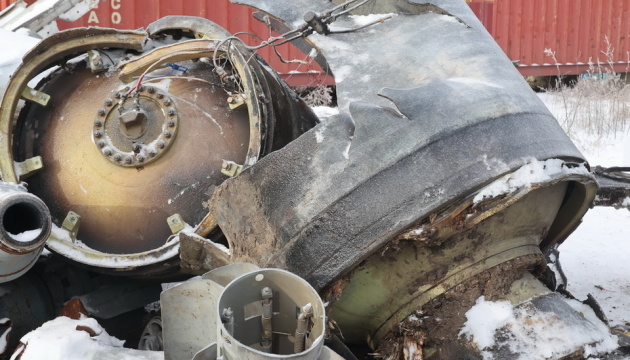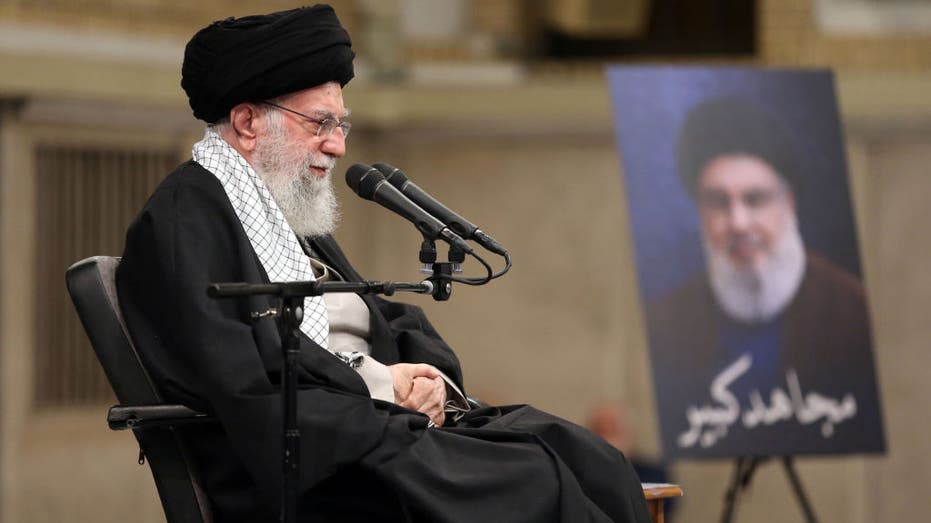Russia vetoes renewal of North Korea sanctions monitors amid accusations of weapons transfer
This decision occurs against the backdrop of heightened tensions and allegations that North Korea has been supplying weapons to Russia, which are being used in the ongoing war against Ukraine.

Russia vetoed the annual renewal of a panel of experts responsible for monitoring the enforcement of longstanding UN sanctions against North Korea.
This decision comes amid escalating accusations that North Korea has been transferring weapons to Russia for use in its ongoing war against Ukraine. Both Moscow and Pyongyang have denied these accusations, despite their vow last year to deepen military relations.
During the vote held on Thursday, China chose to abstain, while the remaining 13 council members voted in favor of renewing the panel. The panel of independent experts has played a crucial role in monitoring North Korea’s ballistic missile and nuclear programs for the past 15 years, providing biannual reports to the Security Council and recommending actions for improved implementation of sanctions.
The White House has condemned Russia’s veto as a “reckless action” that undermines the UN Security Council’s efforts to address North Korea’s nuclear proliferation issues. South Korea’s UN Ambassador, Joonkook Hwang, likened Russia’s veto to “destroying a CCTV to avoid being caught red-handed.” Meanwhile, Deputy US Ambassador to the UN, Robert Wood, criticized Moscow for undermining the prospects of a peaceful resolution to the situation.
“Moscow has undermined the prospect of the peaceful, diplomatic resolution of one of the world’s most dangerous nuclear proliferation issues,” deputy US ambassador to the UN, Robert Wood, told the council.
Russia’s UN Ambassador, Vassily Nebenzia, defended the decision by questioning the panel’s work, claiming that it has increasingly aligned with Western approaches and relied on biased information. Despite Russia’s veto, the sanctions regime against North Korea remains in place, with the UK’s UN Ambassador, Barbara Woodward, affirming the UK’s commitment to holding the DPRK accountable for its compliance.
The panel’s mandate is set to expire on April 30, 2024, but its recent report, made public earlier this month, highlighted ongoing investigations into dozens of suspected cyber-attacks by North Korea, which have allegedly generated $3 billion to support its nuclear weapons program.
The UN Security Council has been divided over how to handle Pyongyang for several years, with Russia and China advocating for easing sanctions and opposing further punitive measures. They argue that joint military drills by the US and South Korea provoke Pyongyang, while the US accuses Beijing and Moscow of emboldening North Korea by shielding it from additional sanctions. The situation remains tense as the international community seeks a path forward in addressing North Korea’s nuclear ambitions.
Russia has been reported to engage in an “arms-for-oil” trade with North Korea, defying UN sanctions. Satellite images have revealed direct supplies of oil from Russia to North Korea.
Russia’s reliance on military imports from authoritarian nations like Iran and North Korea has been increasing as its war against Ukraine continues. North Korea, in particular, has been supplying artillery munitions and short-range ballistic missiles to Russia, with the first debris of a North Korean missile documented in Kharkiv City, northeastern Ukraine.
The Financial Times, citing satellite imagery shared by the UK think-tank Royal United Services Institute (RUSI), reported that at least five North Korean tankers have collected oil products from Russia’s Vostochny Port in the Far East since March 7. The vessels involved in these transactions were all North Korean-flagged and were observed loading at a berth operated by a Russian oil company before heading to the North Korean port of Chongjin to unload. Some of these vessels were previously designated by the UN, indicating that they should not be allowed entry into foreign ports, let alone be involved in oil deliveries.
Analyst: Russian oil money turning North Korea into “ideal military factory”
Furthermore, since last August, despite UN restrictions, North Korea has delivered thousands of munition containers to Russia, significantly aiding Moscow’s war effort in Ukraine. The South Korean Defense Minister, Shin Won-sik, stated that approximately 7,000 containers filled with munitions and military equipment have been sent to Russia since last year. The oil deliveries from Vostochny Port could reach 125,000 barrels within weeks, according to RUSI researchers, which would amount to a quarter of the annual quota permitted under the UN sanctions.
The revelation of this oil-for-arms trade comes at a critical time when Western diplomats are striving to uphold the UN panel monitoring North Korea sanctions. Concerns have been raised over a potential Russian veto of the panel’s mandate renewal, leading to a postponement of the vote.
Additionally, a New York Times report referring to US intelligence sources indicated that Russia allowed the release of $9 million out of $30 million in frozen North Korean assets, which Pyongyang is likely to use to buy crude oil. Moreover, a North Korean front company recently opened an account at another Russian bank in South Ossetia, a Russian-occupied region of Georgia, suggesting that Moscow may be assisting Pyongyang in evading UN sanctions.
Read also:
- FT: Satellite images reveal Russia’s oil supplies to UN-sanctioned North Korea
- North Korea ships “7000 containers of military aid to Russia”
- Analyst: Russian oil money turning North Korea into “ideal military factory”
- Russia likely uses North Korean KN-23 missile in morning massive attack on Ukraine
- NYT: Moscow allegedly helps North Korea with access to international financial system in exchange for weapons
- North Korea uses Ukraine “as test site for nuclear-capable missiles,” South Korea says at UN SC meeting
- Ukraine reports first evidence of North Korean missile used by Russia



